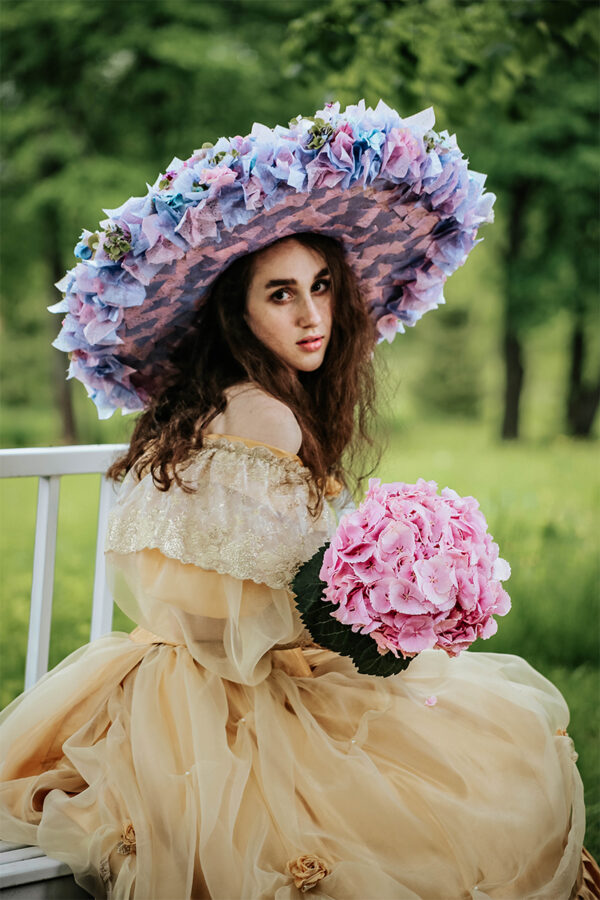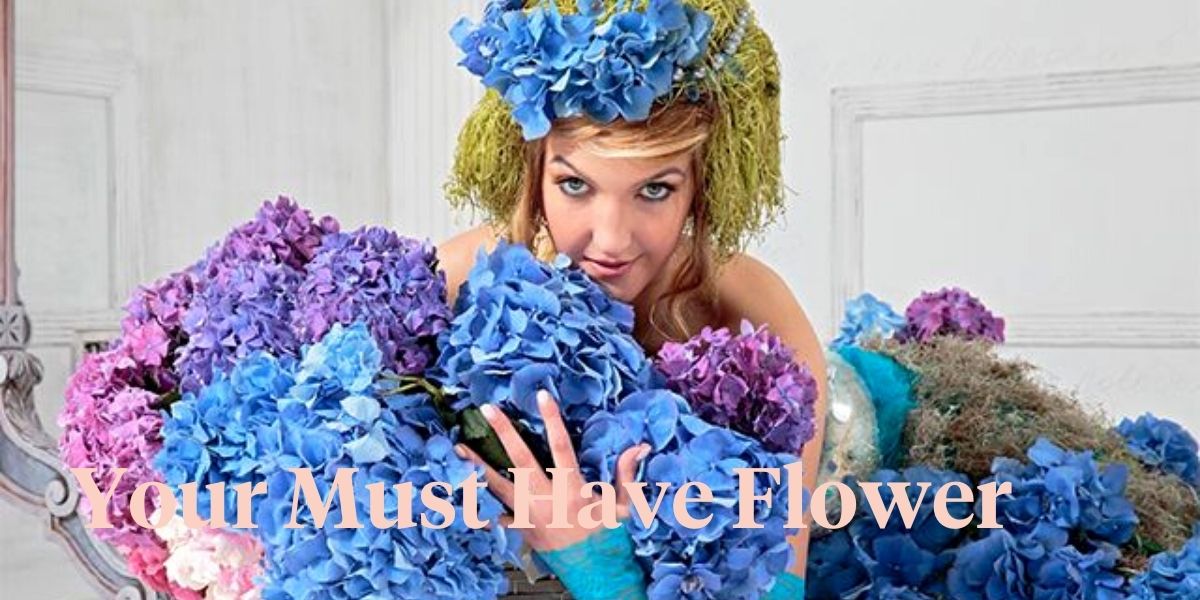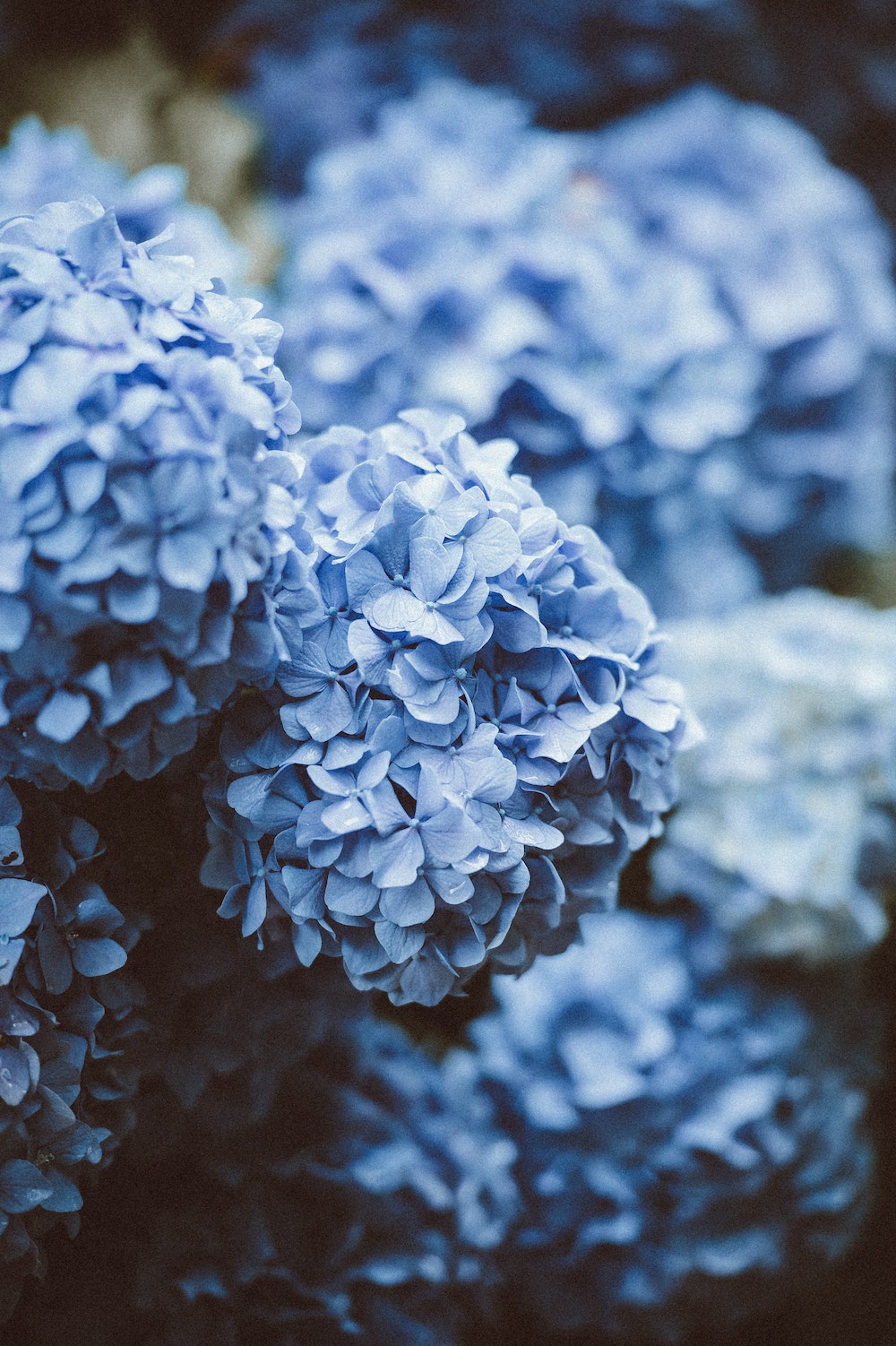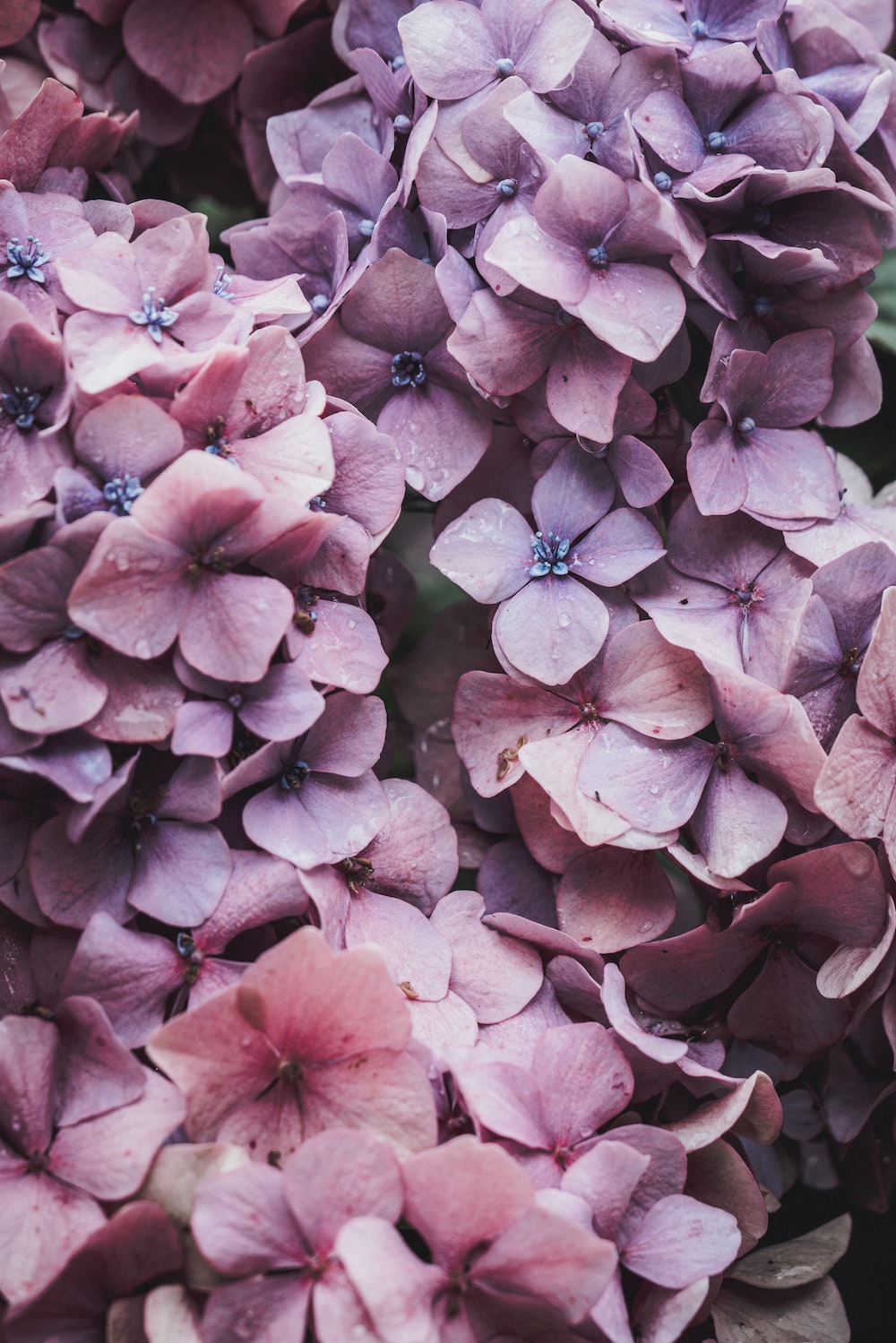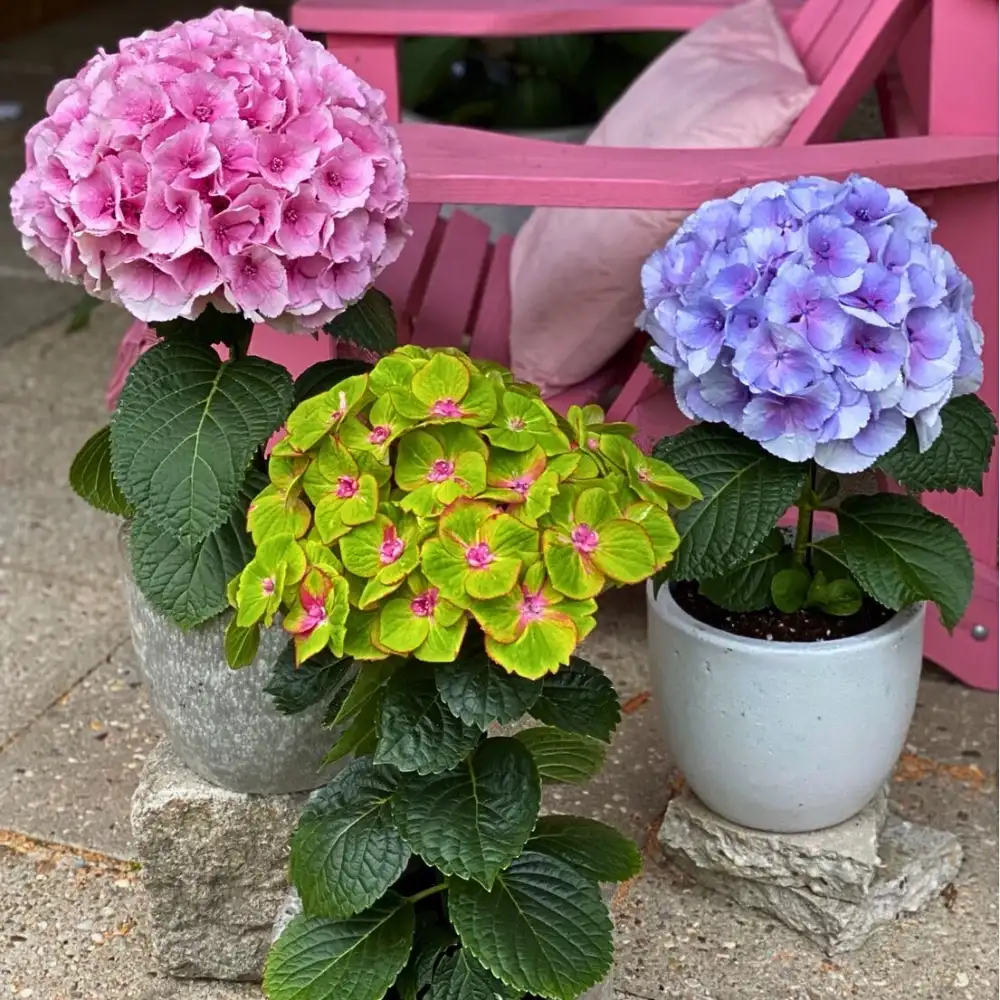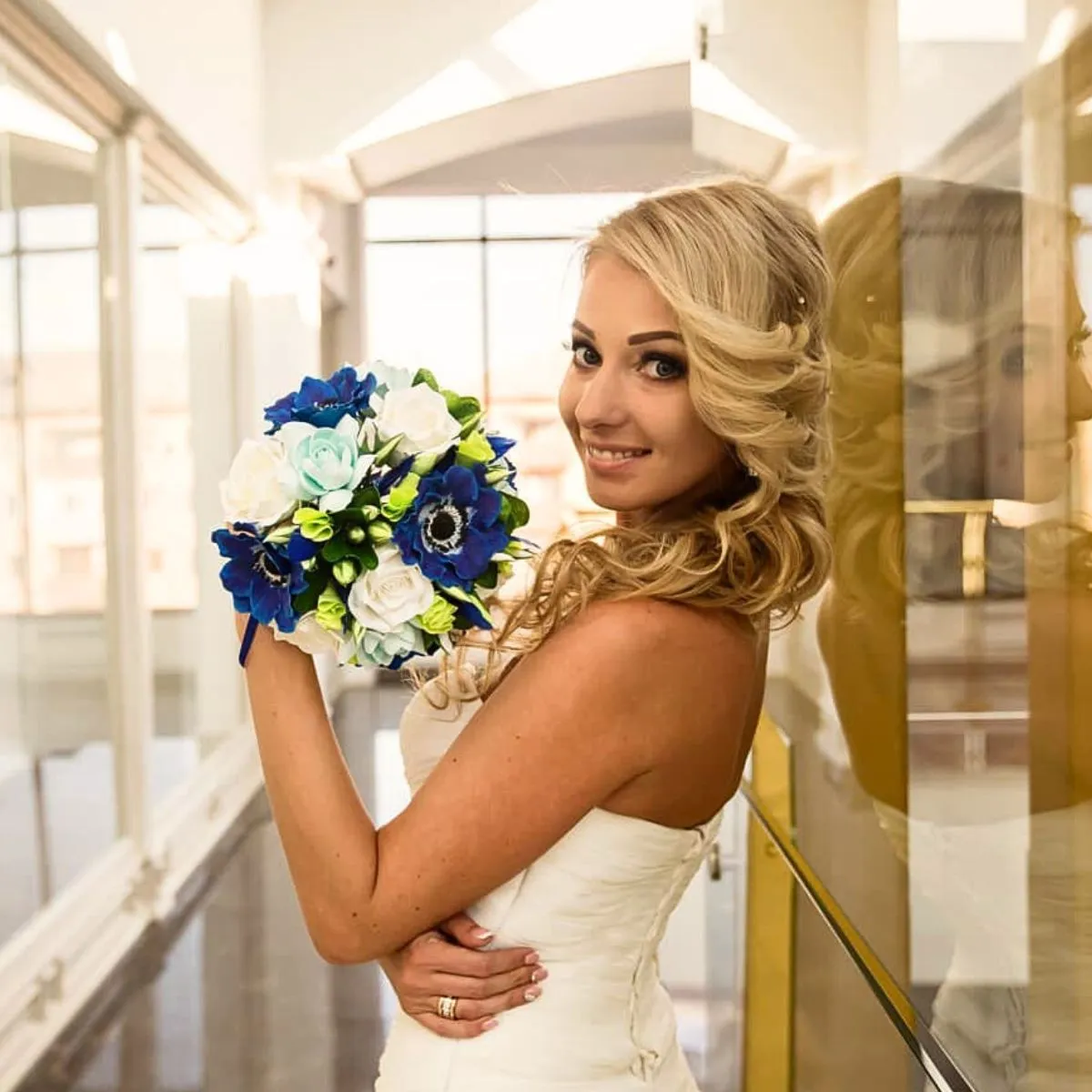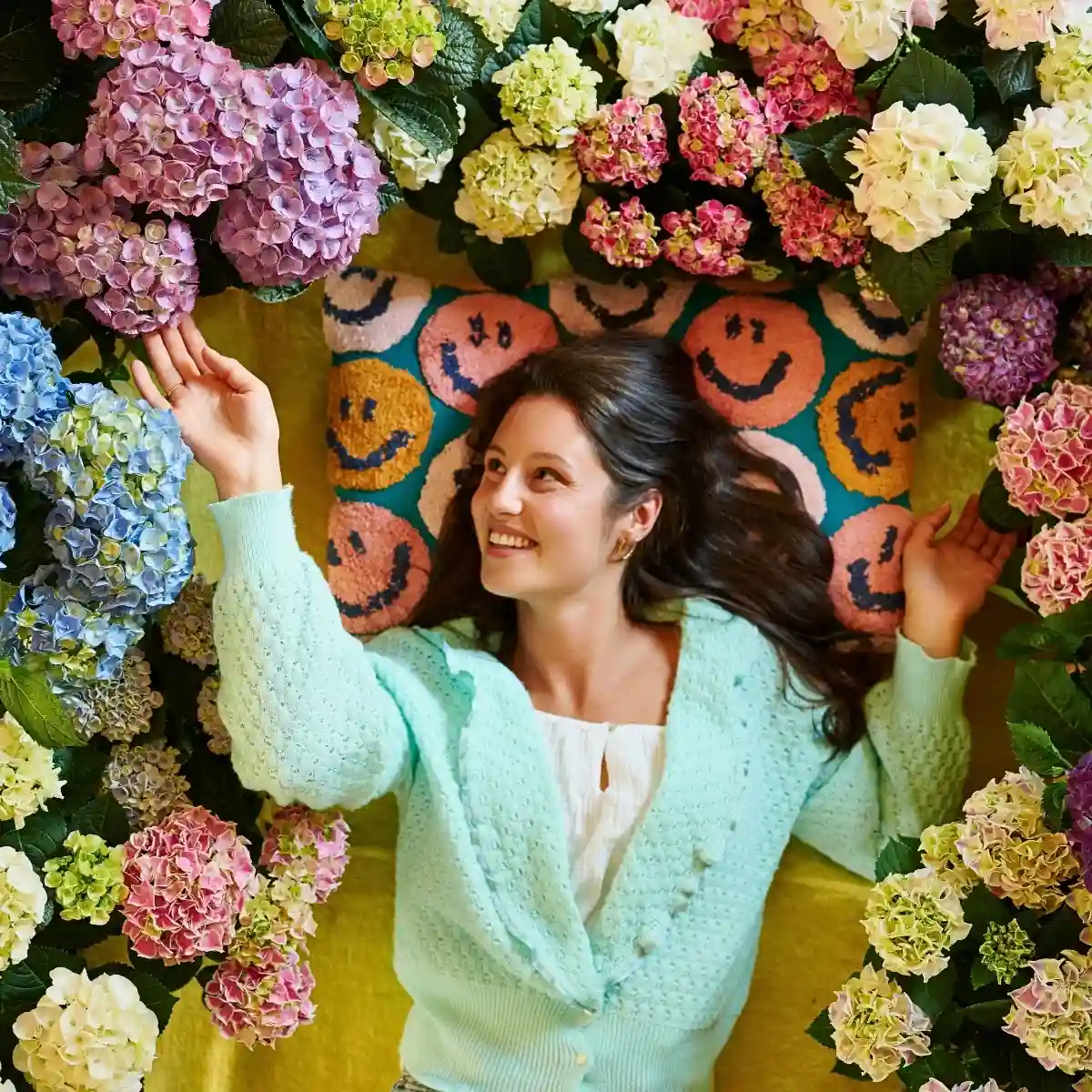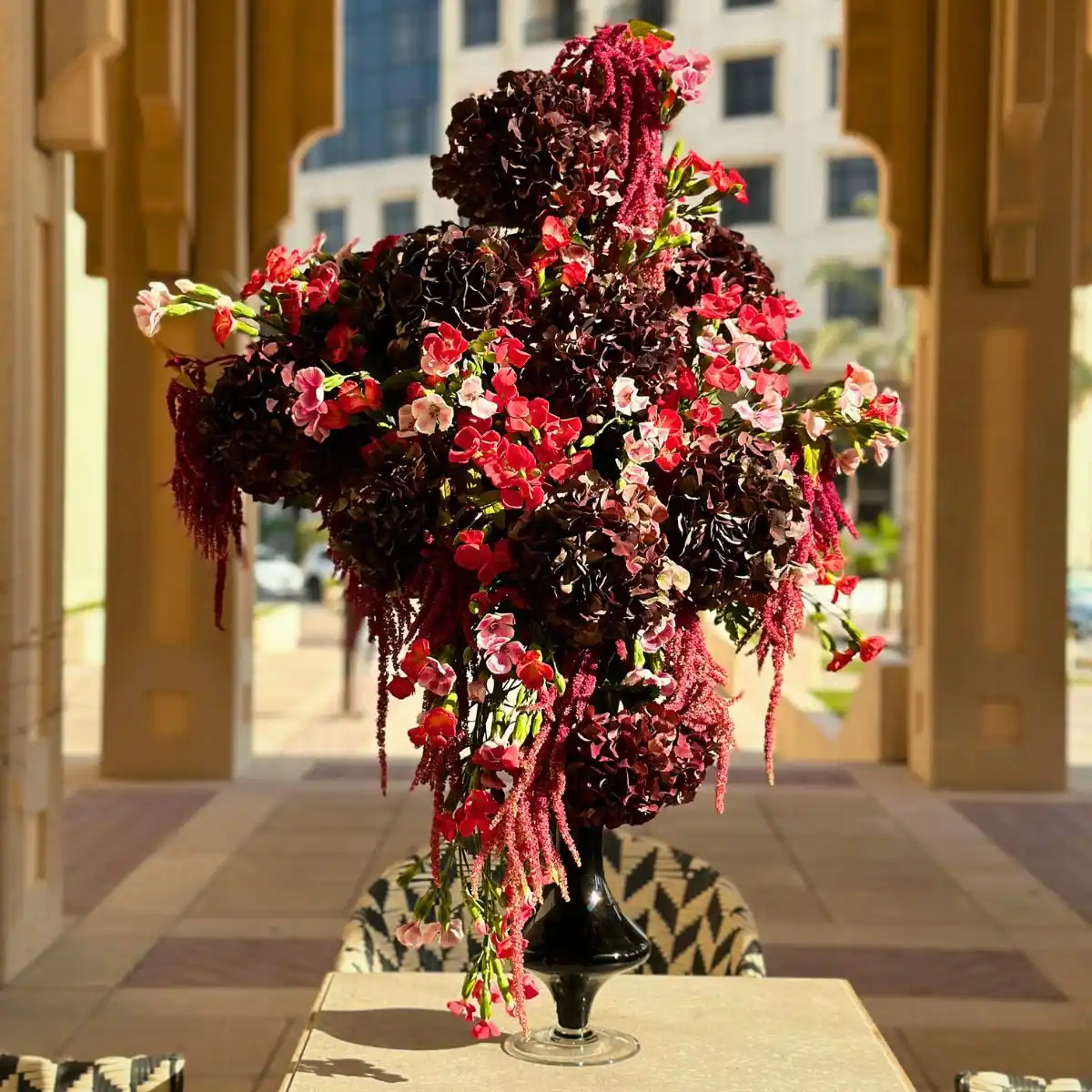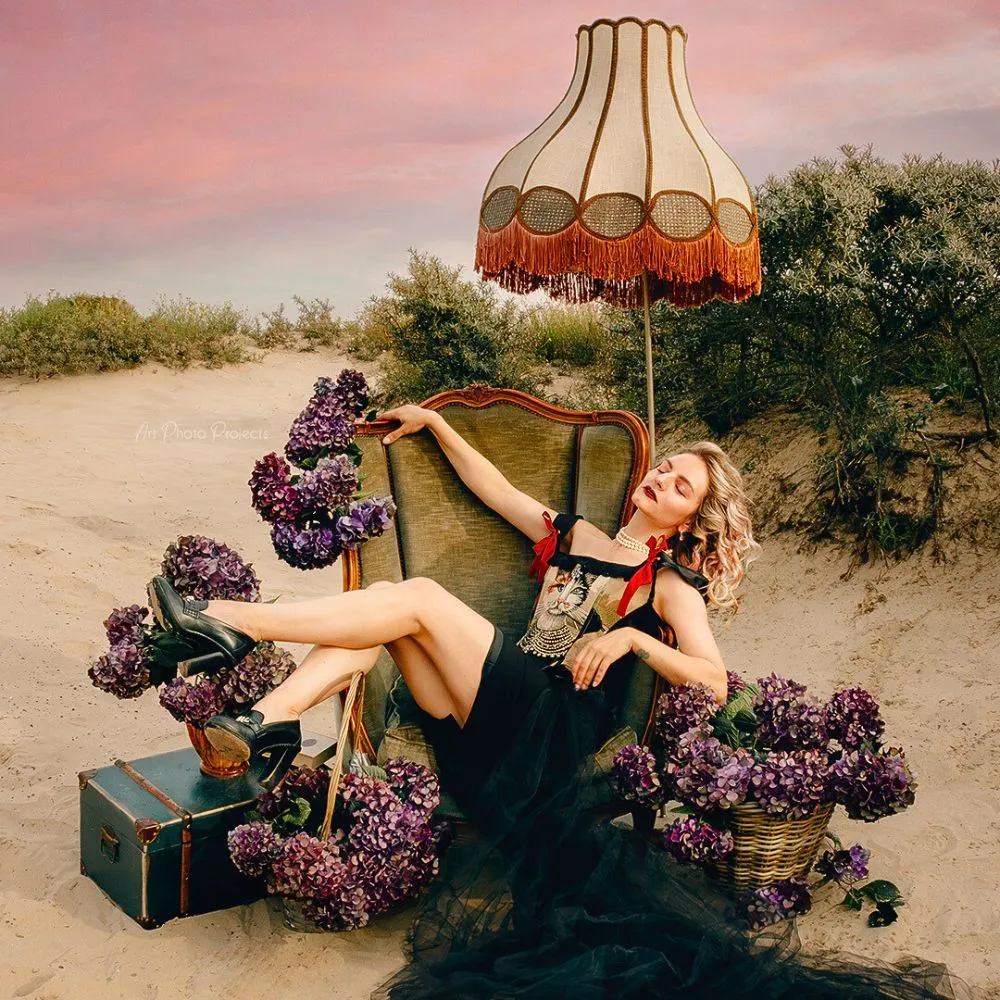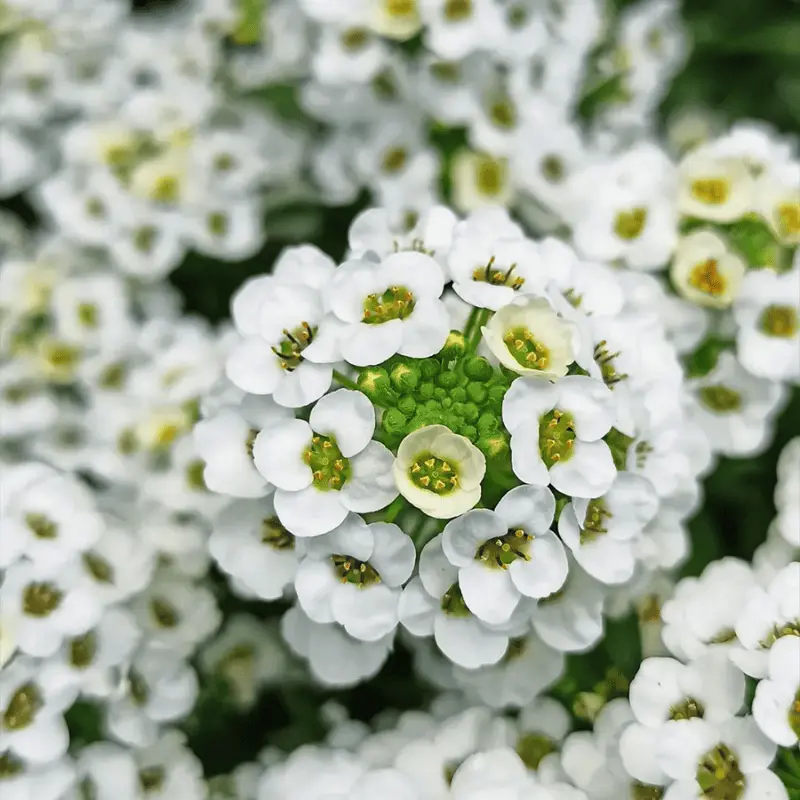Natalia Kosyakova talks with Natasja Mironova - director of the Dutch company Sobolj and the flower platform Flower Experience - about where the hydrangea comes from, and what these flowers are used for today.
Hydrangea - A Symbol of Success
According to Natasja Mironova one creates added value through effective communication. This communication, networking, and influencing results in the brands and products of her customers being optimally positioned. So Natalia Kosyakova is curious what Natasja has to say about Hydrangea.
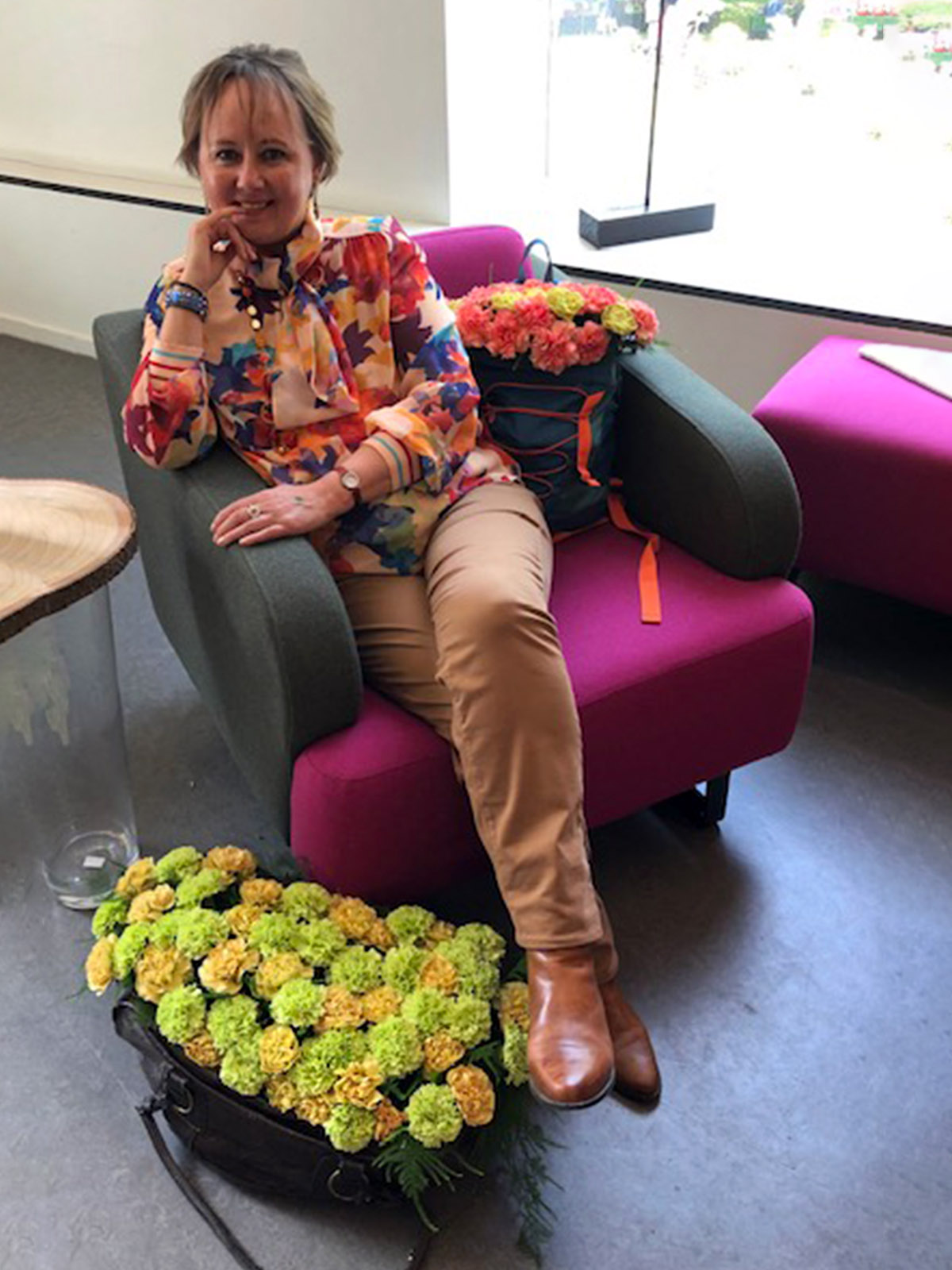
Q.: You can't help falling in love with this flower - it is so beautiful. What associations does the hydrangea evoke in you?
Natasja Mironova:
"Hydrangea is both a flower name and a given name for a woman, therefore for me, this flower is associated with female beauty. It is believed that the hydrangea appeared in Europe around 1735 but for centuries before that, it was already widely used in Chinese and Japanese gardens. Its Latin name, hydrangea, was invented by botanist Grovonius in 1739. When he saw the flower, it reminded him of an old water jug so he combined these two words 'hydro' (water) and 'angeion' (barrel or pitcher) which resulted in the name hydrangea. An appropriate name, since all hydrangea varieties need a lot of water."
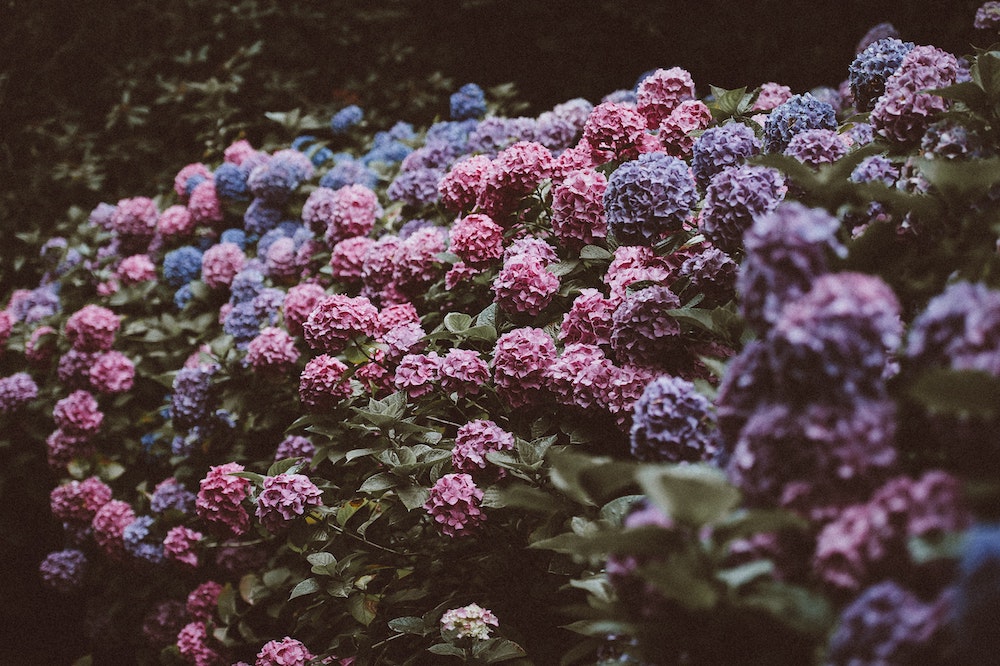
"But there are different stories about how this stunning flower got its name. One of them is that the name is derived from the female name Hortense/Hortensia, named after either a lover or famous female friend of the French physician and naturalist Philibert Commerson in 1771. It was also a popular female name in the higher circles of society at that time, including the queen consort of Holland, Hortense de Beauharnais (daughter of Josephine de Beauharnais and stepdaughter of Napoleon Bonaparte). In my opinion, the female name Hortense is as beautiful as the flower itself, with its Latin name translating to 'blooming'."
Projects
Natasja has already done many projects throughout her career.
Q: In one of your joint projects with colleagues, you make Beauharnais come to life. Can you tell us more about this?
Natasja Mironova:
"Modern florists are very fond of using hydrangeas for their projects. Not just in bouquets. For one of my joint projects with colleagues, I picked up a model that looks exactly like Josephine's daughter and we decorated her head, bodice, and bottom of her dress with multi-colored hydrangeas, making world history and culture come to life. The end result was full of French charm with a classy feel."
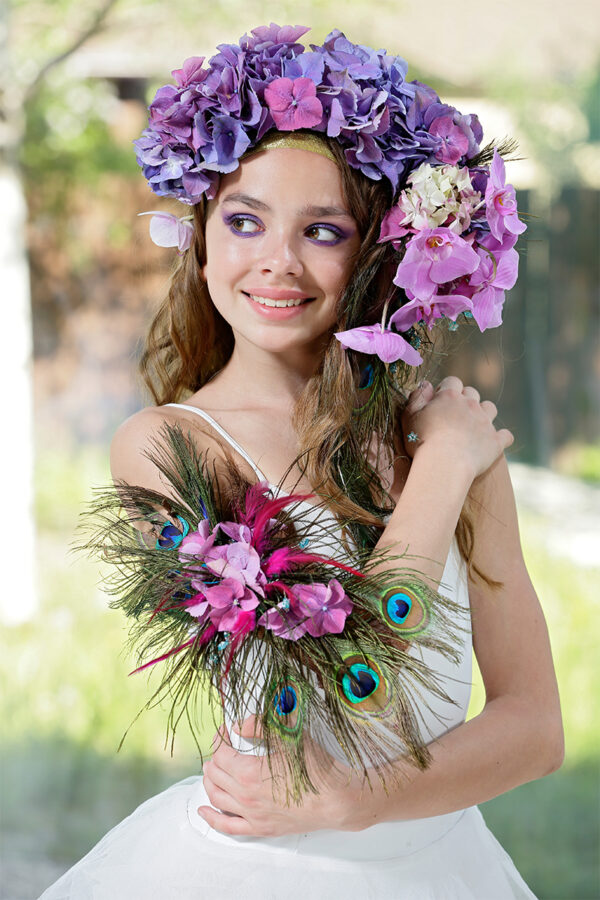
Natasja Mironova:
"The hydrangea is so huge, you could make a whole hat out of just one flower. As big as they are, hydrangeas are also very airy at the same time, especially the white and cream-colored varieties. Inspired by Matilda Kshesinskaya's floral dress at her graduation performance, I used these motifs to create packs of young ballerinas from the Nutcracker Dance Theater. The hydrangeas themselves in these shades were next to the girls and in their hands. These beautiful flowers and girls made a dizzying fouette. I would even venture to call the hydrangea a symbol of success."
Hydrangea Origin
It's known that Hydrangea was not originated in Europe. The hydrangeas are the native flowers of Japan, South Asia, and America. It quickly grows in almost any soil with moderate hydration and temperature. So they were brought to Europe.
Q.: They say the hydrangea was brought to Europe from Asia and then domesticated further. Is this true?
Natasja Mironova:
"Yes. But the flowers that we see over here now are from selective varieties. Initially, hydrangeas were white, pink, or slightly greenish. But these days there is a shade for everyone's liking. By the way, Dutch growers recently started their cut flower hydrangea season so right now is the perfect time to buy them."
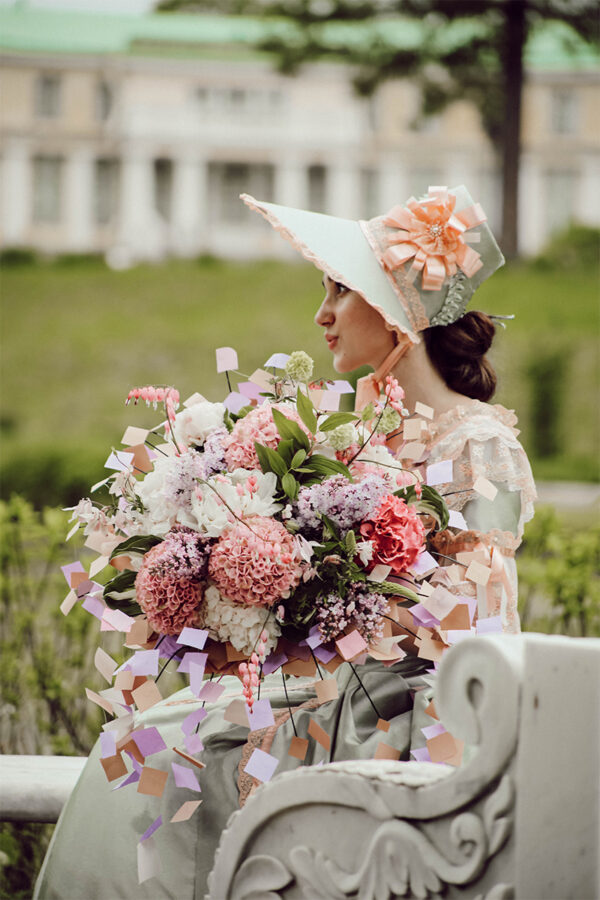
"Florists often like the hydrangea for its firmness, splendor, elegance, and special luxury. I agree because if there is at least one hydrangea in a bouquet, your eyes will be immediately drawn to it. Let alone whole floral installations consisting of only these beauties! Interestingly, this flower never loses its charm, even when they are dried up. You can use them again in dried floral arrangements. They also make great 'background' flowers, giving you the perfect base to emphasize the beauty of another plant or flower. Hydrangeas are the queen of the garden. They are truly regal."
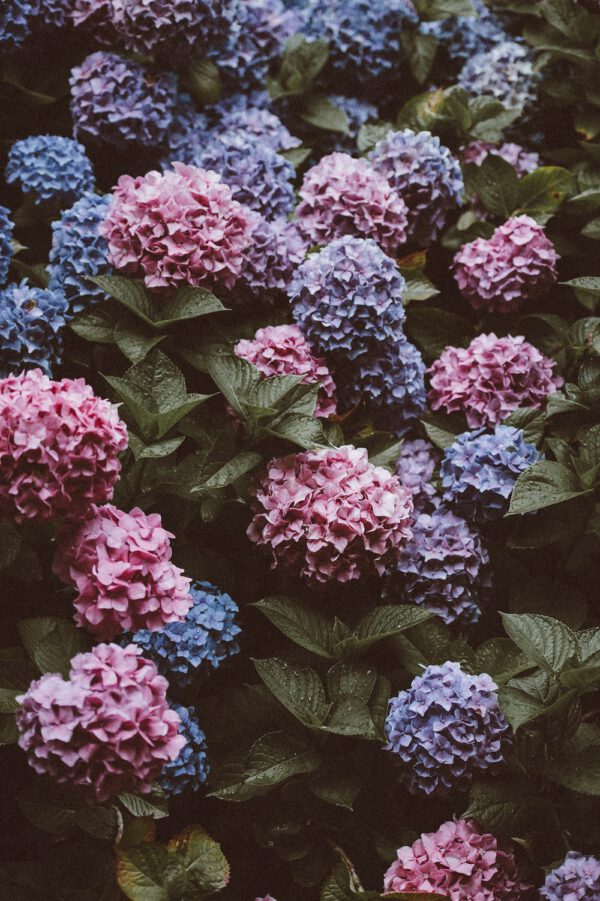
Palace and Manors
The status of this beautiful flower is often seen as luxurious.
Q.: For a luxurious flower, perhaps the most appropriate place for it would be a palace or a manor, don't you think so?
Natasja Mironova:
"Undoubtedly! And the owners of palaces and estates perfectly understand this. The word for 'estate' is inextricably linked with the words 'garden' and 'flowers' - this was facilitated by both the suitable climate and romanticism. In addition to open gardens, the estates had greenhouses, flowers stood in vases, and flaunted in the hair of young ladies and women."
Natasja continues:
"I'm also glad that, as an organizer and ideological inspirer, I took part in one of these projects for the family estate of the Golitsyn-Stroganovs - the Maryino estate in the Leningrad region. According to my concept, florists have created a floral atmosphere, comfort and luxury, decorating rooms in different styles. In this estate, as it turned out, there are historical costumes from different centuries, starting from the times of Peter the Great. Our model in this project, dressed in an antique dress from the mid-19th century, was adorned with a hat made from small pieces of hydrangea, and in her hands, she was holding a huge bouquet. According to followers on social media, the image resembled Tatyana Larina and Turgenev girls."
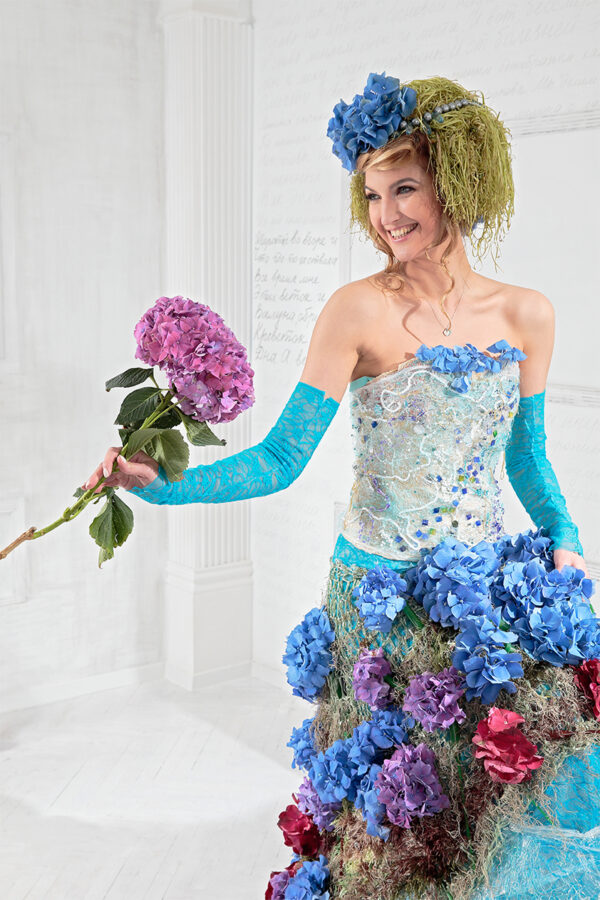
"In my opinion, the hydrangea is a unique flower that combines Eastern and Western cultures. She is equally loved in China, Russia, and Holland. An incredibly romantic flower. It looks gorgeous in the garden, and in nature, and on the veranda, and in the house, and in the form of a dress of exquisite beauty. In contrast to the matte greenery of the garden, the variety of hydrangea colors reminds us of the blue of the sky and the transparency of dawn, the shine of the water and the weightlessness of the clouds. Therefore, it is not surprising that this flower is so loved."
